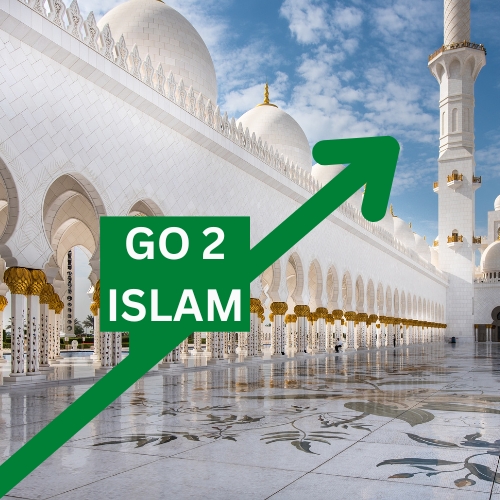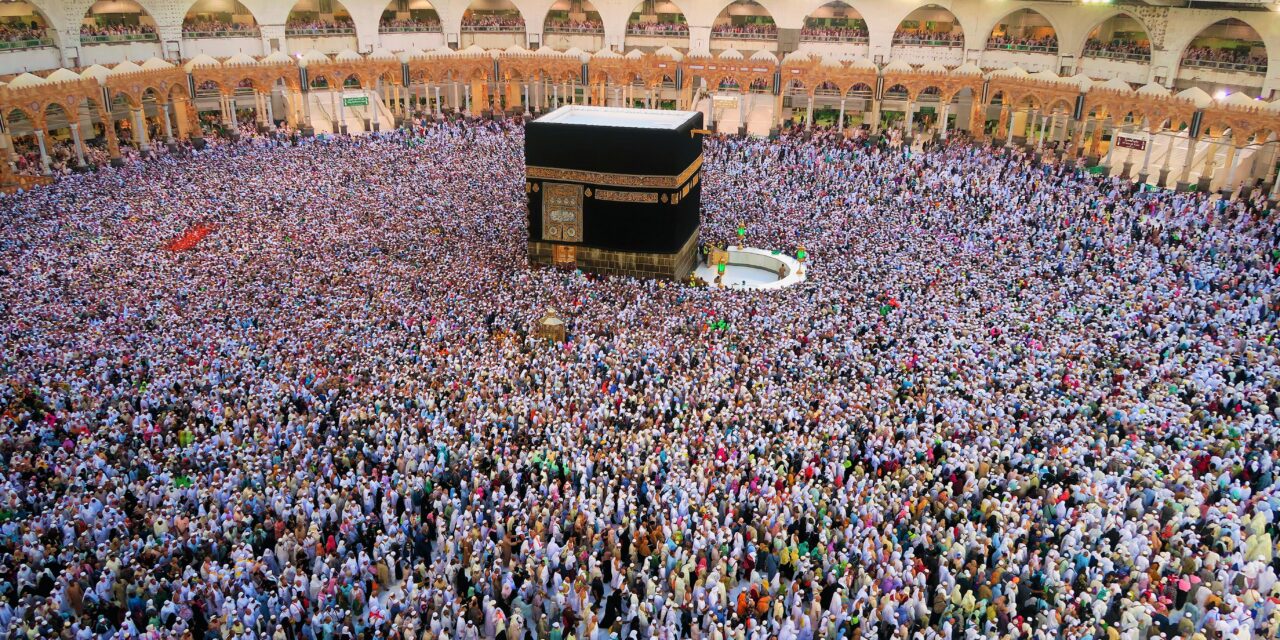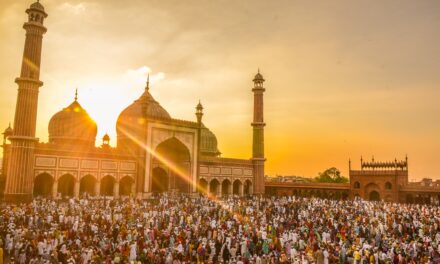The history of Islam dates back to the 7th century in the Arabian Peninsula. The first Muslims were the companions of the Prophet Muhammad, who began receiving revelations from Allah through the angel Gabriel in 610 CE. These early followers, known as the Sahabah, were instrumental in spreading the message of Islam and establishing the Muslim community, or ummah.
The first converts to Islam were a small group of close friends and family members of the Prophet Muhammad. His wife Khadijah was the first person to accept Islam, followed by his cousin Ali and close friend Abu Bakr. These early converts faced persecution and hardship for their beliefs, as the dominant religion in Arabia at the time was polytheism and the powerful leaders of Mecca were threatened by the monotheistic message of Islam.
Despite the opposition, the message of Islam continued to spread and the number of Muslims grew. Many of the early converts were from the lower classes, such as slaves and merchants, who found in Islam a message of equality and social justice. The message of Islam also resonated with many women, who were treated as second-class citizens in pre-Islamic Arabia and found in Islam a message of equality and empowerment.
One of the most notable early converts was a young man named Bilal, a slave who was tortured and beaten for his belief in Islam. Bilal’s devotion to his faith and willingness to endure persecution was an inspiration to many, and his story is still remembered and celebrated today.
The early Muslims faced many challenges, including persecution and violence, but they were able to establish a strong and vibrant community. They built mosques and established the first Islamic state in Medina under the leadership of the Prophet Muhammad. They also engaged in trade and commerce, spreading the message of Islam to other parts of Arabia and beyond.
The early Muslims also made significant contributions to literature and the arts, preserving and transmitting the teachings of the Prophet Muhammad and the Quran. They also made important advances in the fields of science and medicine, and many of the early Muslim scholars were renowned for their knowledge and wisdom.
Despite the challenges and persecution they faced, the first Muslims were able to establish a strong and vibrant community that continues to thrive today. Their devotion to their faith and willingness to sacrifice for it continues to inspire Muslims around the world and serves as a reminder of the power of belief and the importance of standing up for one’s convictions.
It is important to remember that the first Muslims were a diverse group of people from different backgrounds and walks of life, united by their belief in the one God and the message of Islam. They faced many challenges, but they were able to establish a strong and vibrant community that continues to thrive today. Their example serves as a reminder of the power of belief and the importance of standing up for one’s convictions.
In conclusion, the first Muslims played a critical role in the establishment of Islam and its spread across the world. They were a diverse group of people from different backgrounds, united by their belief in the one God and the message of Islam. They faced many challenges, but they were able to establish a strong and vibrant community that continues to thrive today. Their example serves as a reminder of the power of belief and the importance of standing up for one’s convictions.
In addition to spreading the message of Islam, the early Muslims were also instrumental in shaping the beliefs and practices of the faith. They were the first to perform the daily prayers, the first to fast during the month of Ramadan, and the first to make the pilgrimage to Mecca. They also established the first Islamic institutions, such as the mosque and the Islamic court.
The early Muslims also played a crucial role in the preservation and transmission of Islamic knowledge. They memorized and transmitted the teachings of the Prophet Muhammad and the Quran, as well as the Hadith, which are the sayings and actions of the Prophet. They also made significant contributions to the fields of Islamic theology, law, and jurisprudence, which continue to shape Islamic beliefs and practices today.
The first Muslims were also known for their strong sense of community and brotherhood. They were committed to the principle of mutual support and assistance, and they established the first Islamic welfare system to provide for the needy and the less fortunate. They also established the concept of Zakat, which is a charitable tax that is still in practice today.
One of the most important legacies of the first Muslims is their example of sacrifice and dedication to their faith. They were willing to endure persecution and hardship for their beliefs, and their devotion to Islam continues to inspire Muslims around the world. They also left behind a rich cultural heritage, including literature, art, and architecture, which continue to influence Islamic civilization today.
In conclusion, the first Muslims were instrumental in shaping the beliefs and practices of Islam, spreading the message of the faith, and establishing a strong and vibrant community. They were a diverse group of people united by their belief in the one God and the message of Islam. They faced many challenges, but they were able to establish a strong and vibrant community that continues to thrive today. Their example serves as a reminder of the power of belief and the importance of standing up for one’s convictions. They were also known for their sense of community and brotherhood, charity, and dedication to their faith, which continues to inspire Muslims around the world and shape Islamic civilization today.
Islam continued to spread and develop throughout the centuries following the time of the first Muslims. During the early centuries of Islam, the Islamic empire expanded rapidly, spreading the faith to regions such as Egypt, Syria, and Persia. The empire also brought together diverse cultures and peoples, and Islamic civilization flourished in areas such as science, literature, art, and architecture.
One of the most significant developments in Islam during this time was the solidification of Islamic law and jurisprudence, known as Fiqh. This was done through the work of scholars and jurists who sought to understand and interpret the Quran and the Hadith, and to establish legal principles and practices for the Islamic community.
Another important development was the emergence of various Islamic schools of thought and sects. These included the four main Sunni schools of law (Hanafi, Maliki, Shafi’i, and Hanbali) and the two main Shia schools of law (Ja’fari and Zaydi). These schools of thought continue to shape the beliefs and practices of Muslims around the world today.
During the medieval period, Islamic civilization continued to flourish in areas such as science, literature, and art, but the Islamic empire began to decline. This was due to a number of factors, including internal conflicts, economic decline, and the rise of European powers. However, despite these challenges, Islam continued to spread and grow, and new centers of Islamic learning and culture emerged in regions such as India, Central Asia, and the Ottoman Empire.
In the modern era, Islam has continued to evolve and adapt to changing circumstances. The rise of nationalism movements in the 19th and 20th centuries led to the creation of nation-states in the Muslim world, and this has had a significant impact on the way in which Islam is practiced and understood. Additionally, the growth of Islamic revival movements and the rise of political Islam have also had a significant impact on the way in which Islam is perceived and practiced today.
In conclusion, Islam has continued to develop and evolve throughout the centuries, with various developments, sects, and schools of thought shaping the beliefs and practices of the faith. While facing challenges such as the decline of the Islamic empire, the rise of European powers, and the emergence of nation-states, Islam continues to spread and grow. The Islamic civilization continues to flourish in areas such as science, literature, and art, and new centers of Islamic learning and culture have emerged in regions such as India, Central Asia, and the Ottoman Empire. Today, Islam continues to adapt to changing circumstances and new challenges, with Islamic revival movements and political Islam shaping the way in which the faith is perceived and practiced.



